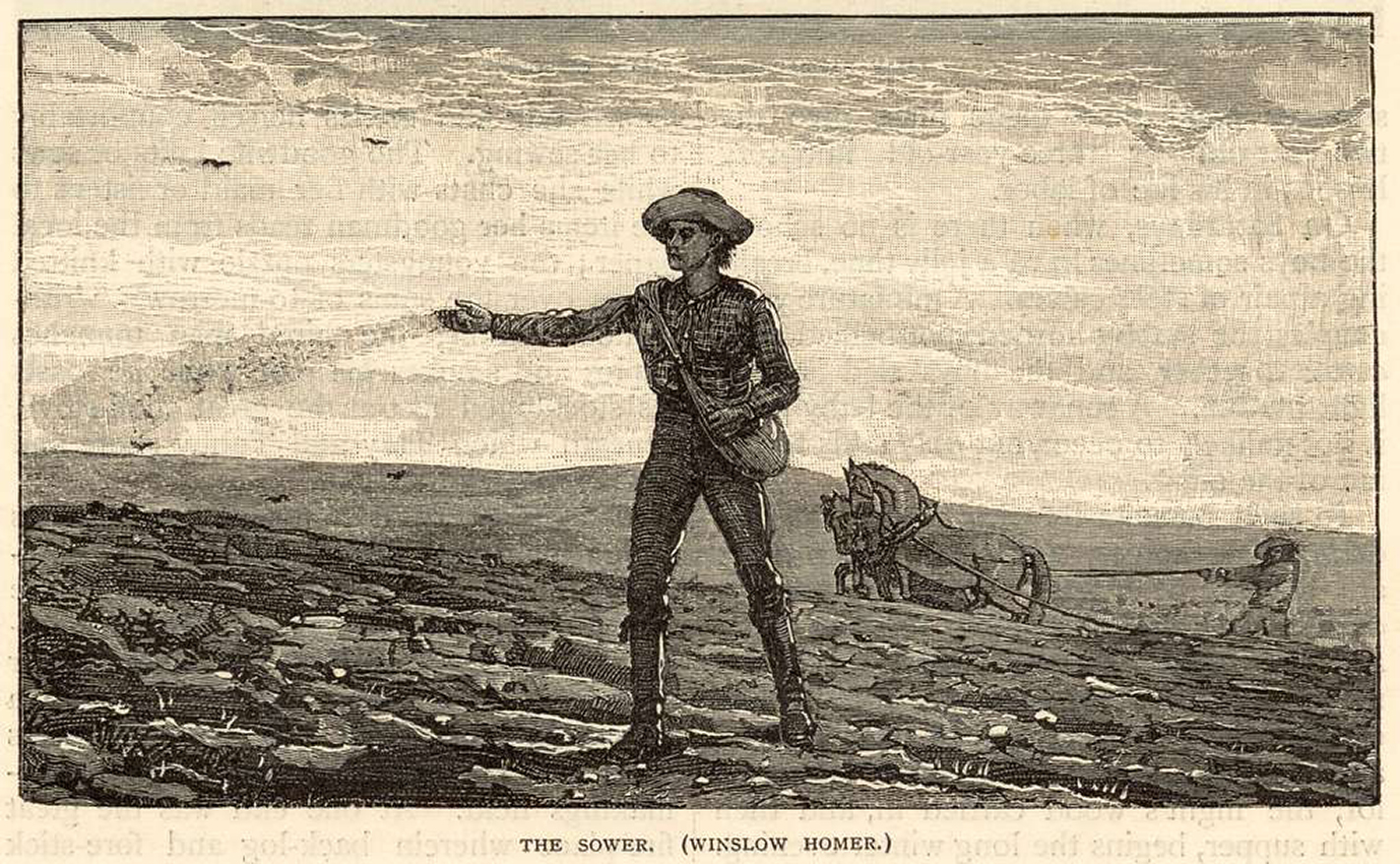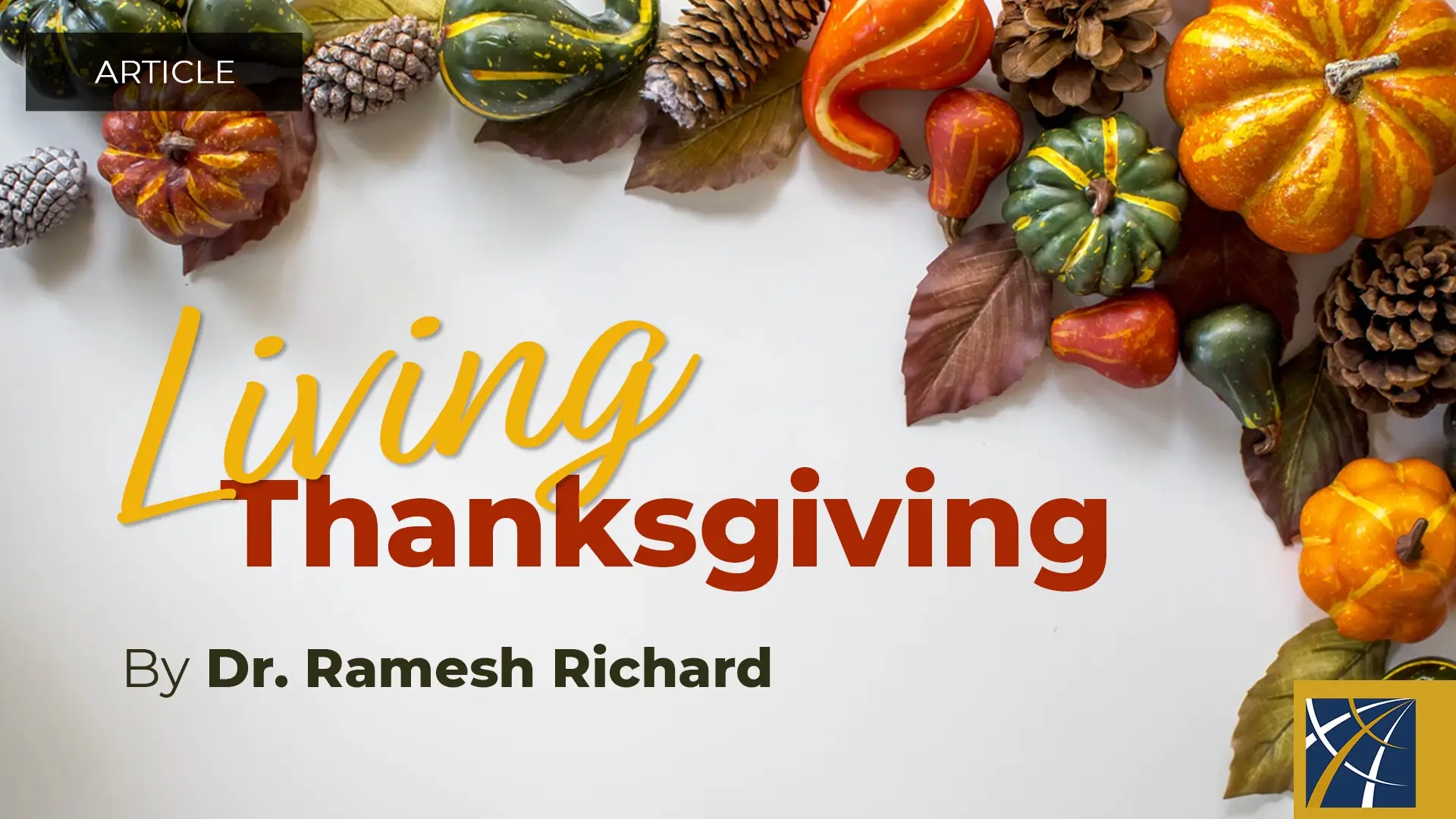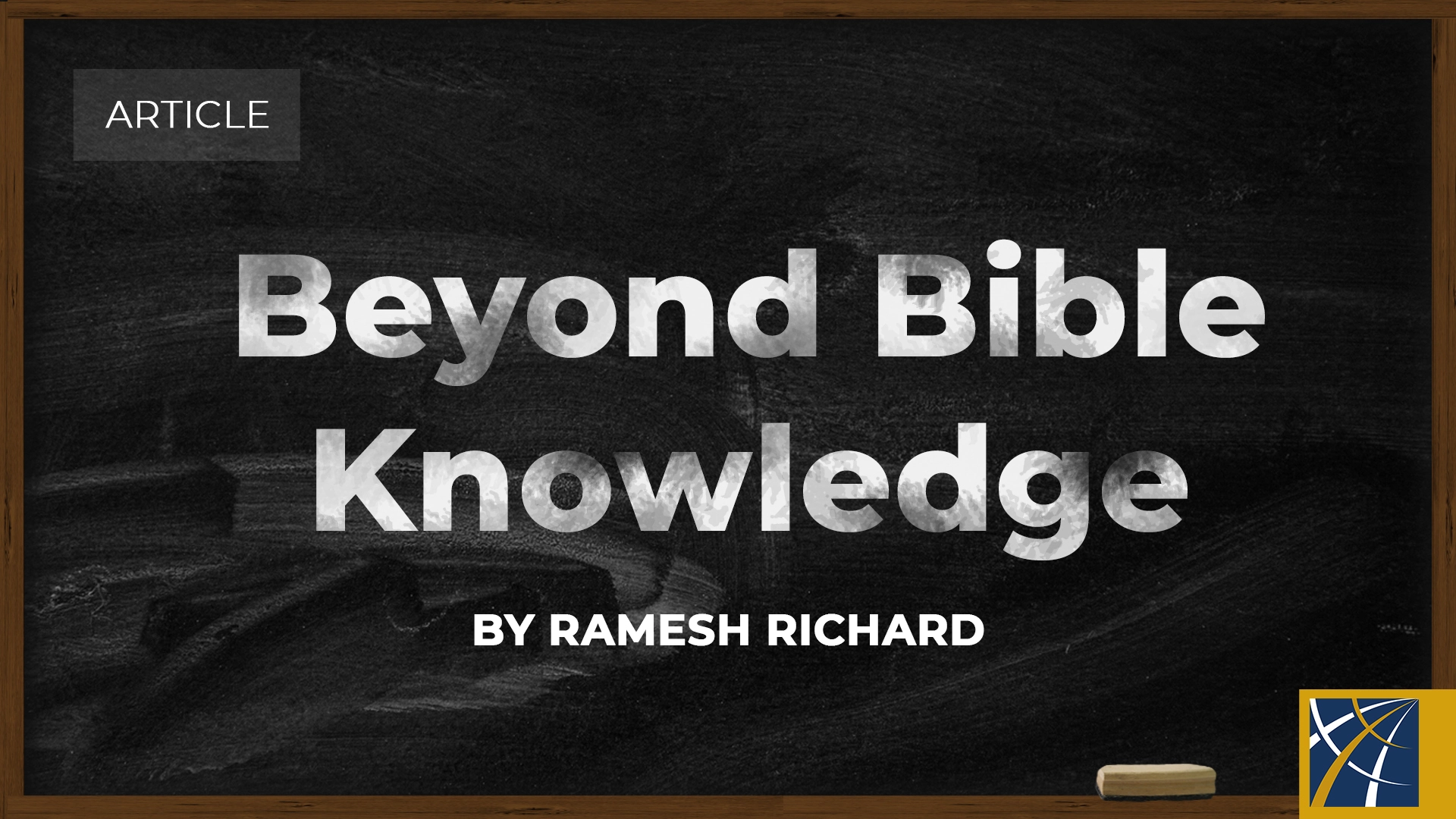Does it add up?

Does it add up?: Ministry Arithmetic
Ramesh Richard

I am told there are three kinds of people: those who can count and those who can’t. Our just first-grader grandkid is convinced 1+1=2. My small group leader, attempting to inspire pastoral training organizations to partner with one another, told us that 1+1=3!
I’ve also heard motivational speakers use the equation 1×1=3 to stimulate collaboration. This, too, is poor arithmetic. I don’t want to confuse my granddaughter, who, at this point, does better at restaurant tables than multiplication tables.
It’s best to receive these mathematical metaphors as motivation to encourage businesses and organizations toward synergy. Partnership, collaboration and synergy can mitigate disruptive “polycrises” and seize relevant opportunities.
The Book of Acts uses both metaphors—addition and multiplication—to document the incremental extension (+) and exponential expansion (×) of the early Christian church. At the end of Luke’s Gospel (Volume 1, a history of Jesus), Jesus gives a global proclamation commission: “that repentance for forgiveness of sins would be proclaimed in His name to all the nations” (Luke 24:47).
The first chapter of Acts (Volume 2, a treatise on Christ’s church) looks back to the last chapter of Luke. It presents the Holy Spirit’s implementation of Jesus’ mission through human agency— empowered apostles and disciples of Jesus—that unfolds in the rest of the book.

Geographical Extension
Author Luke develops a literary tactic around the geographical extension of early witness that Jesus envisioned and promised in Acts 1:8: “But you will receive power when the Holy Spirit has come upon you; and you shall be My witnesses both in Jerusalem, and in all Judea and Samaria, and even to the remotest part of the earth.”
Many Dallas Seminary graduates like me well remember their first Bible Study Methods class with Prof. Hendricks and this Acts 1:8 passage. Tasked with making 25 observations on this pivotal text for spiritual and missional reasons, we would grope and stretch to achieve the goal. And just when we barely came up with 25 observations of unequal weight, our late “Prof” (DTS has had many professors in its nearly 100-year history, but only one “Prof”) would charge us to make 25 more remarks and reflections on this singular text, generating a classroom-wide moan!
Almost all of us were excited by the discovery of Luke’s programmatic development of his 28 chapters in the same geographical sequence. Jesus prophesied in His last earthly promise that His disciples would be witnesses in Jerusalem (Acts 2–7), in all Judea and Samaria (Acts 8–12), and even to the remotest part of the earth (Acts 13–28).
I had noticed that God’s intent of personal witness with a global reach continued the Old Testament ethos (see Isa. 43:10 and 49:6), except that the Holy Spirit’s decisive and definitive coming differentiated His pre- and post- Pentecost activity in, for, and with all believers.
In Acts, God’s plan for the nations through the apostles, emboldened by the Holy Spirit, concludes with Paul preaching and teaching in Rome. Luke ends his book rather abruptly, with the last word referring to the geographical progress of the gospel as “unhindered.”
You and I are included in the onward geographical movement of the gospel and are invited as personal witnesses to Jesus.
I really wanted to choose that last written word of Luke, unhindered (Acts 28:31), as RREACH’s one “word and verse for this year.” The word is powerful and positive. Yet it is so uniquely related to Paul’s biography that it is not directly relatable to all of us. Indirectly? Of course. I like what one commentator notes: “Nevertheless, Acts provides only selected illustrations of the way God’s purpose was advanced in the first few decades, and the narrative concludes with the task uncompleted. Readers are left with an implied challenge to continue the work of worldwide testimony to Jesus.”1
You and I are included in the onward geographical movement of the gospel and are invited as personal witnesses to Jesus. Now, Christ’s church already exists in every nation and nearly every ethnic entity in the world. And unlike in traditional Christendom (Western Europe and Northern America), Christ’s church is growing expansively in more newly reached geographies—Asia, Africa and Latin America.

Numerical Expansion
What I hadn’t noticed in that early seminary project was Luke’s other literary tactic in Acts. For homework purposes, I was quite focused on one text (1:8) and its more obvious geographical development. With a bias toward quality (probably still so, 45 years later) rather than quantity, I overlooked Luke’s reports of the numerical expansion—addition (+) and multiplication (×).
Luke uses numerical verbiage around the fledgling movement in six summary reports connecting the growth of Christian numbers to the proclamation of God’s word.
If I were giving a seminary-level assignment today, I would have students identify what I discovered only later in ministry maturity. The geographical extension of apostolic witness (Acts 1:8) develops along integrated summaries at critical points of Luke’s treatise—the numerical expansion of God’s church through the proclamation of God’s word.
Expansive sowing led to extensive growing.
Would you circle words and phrases with a “numbers”feel in the six verses that follow?
- Acts 2:47: And the Lord was adding to their number day by day those who were being saved.
- Acts 6:7: The word of God kept on spreading; and the number of the disciples continued to increase greatly in Jerusalem, and a great many of the priests were becoming obedient to the faith.
- Acts 9:31: So the church throughout all Judea and Galilee and Samaria enjoyed peace, being built up; and going on in the fear of the Lord and in the comfort of the Holy Spirit, it continued to increase.
- Acts 16:5 So the churches were being strengthened in faith, and were increasing in number daily.
- Acts 19:20: So the word of the Lord was growing mightily and prevailing.
And Luke’s sixth one for some comments:
Acts 12:24: But the word of the Lord continued to grow and to be multiplied.
Notice the connective and, an important word of co-relation between two verbs – to grow and to be multiplied. Co-relation is not causation. One factor doesn’t cause the other. But there is a mutual connection, even linear relation, between two elements. A presenter makes simple associations and shows some shared dependence. When one factor changes, positively or negatively, the other changes as well. In this text, there is a positive co-relation. The increase in the latter passive verb – to be multiplied – is divine activity. It is co-related to the increase in the former active verb – to grow – human activity.
Grow (Greek, auxanō), a word of increase in personal activity, reminded readers of the varied responses to God’s word in the parable of the soils (Luke 8:4–15). Luke here shares how the seed of the word of God was grown when sown in good soil. The word of God kept on growing. Expansive sowing led to extensive growing, an agricultural illustration.
Multiply (Greek, plēthunō) also denotes increase. But the word takes us beyond increase by adding to an increase by multiplying—an arithmetic illustration. This word adds a multiplicative outcome and refers to the result of numbers rapidly increasing incrementally and exponentially.
Both these words in the Greek imperfect tense convey constant movement and ongoing perpetuation of the unfinished activity and its outputs. The word of God kept on growing and multiplying. Since the latter word contains the former, connects to it, and is co-related with it, I have chosen MULTIPLYING as our organizational word of the year (and really for the rest of our ministry) for priority, intensity, tenacity and activity.

This Winslow Homer painting captures the farmer sowing seed with harvest in mind.
Multiplying assumes an actionable imperative—we must “be fruitful and multiply” in intentionally sowing and growing the word of God—but yields an unpredictable, even immeasurable result. Fortunately and divinely, the outcome of our work is ongoing, the multiplying of the people of God.
The word of God here is personified as an independently reproductive thing, much like a seed that contains resources to bear fruit and multiply under the right conditions. Again, Jewish readers of Luke would have connected the concept of “growing and multiplying” to God’s creation command to “be fruitful and multiply” (Gen. 1:28). They would especially remember God’s covenant commitment to their nation: “So I will turn toward you and make you fruitful and multiply you, and I will confirm My covenant with you” (Lev. 26:9).
This personification of the word of God is also because persons are involved in the proclamation of the word of God. The word of God grows and multiplies by God’s Spirit through human agency. The message is scattered, or in other words, sown by the messengers who were scattered (Acts 8:1–4; 11:19). I draw the growth and multiplying movements of Acts through human agents in this way:
In ministry arithmetic, the more the multipliers, the more the multiplying in multiples. In several parts of the world, even in contexts of constraint and restraint, the word of God continues to grow and multiply without our having known better or more.
The word of God grows and multiplies by God’s Spirit through human agency.
Observe the first word in our theme verse – a contrastive but. Herod, the persecutor of God’s church, who confused and divinized himself, was eaten by worms and breathed his last (v.23). But the word of God increased and multiplied! Three articles I read in the last few months of God’s word currently multiplying in India, Iran, and Israel raised my consciousness as well as my confidence in God’s word as not bound (2 Tim. 2:9). As God’s word is sent, it will accomplish God’s intent (Isa. 55:11).
Normally, God’s word does not get anywhere independent of its carriers. Yes, its proclaimers will face harm and danger, grief and pain, as in the book of Acts. But though local proclamation may be halted, often in and through the suffering or early demise of its proclaimers, global proclamation can not be stopped. The Apostle James is gone (Acts 12:2), but he was replaced by Peter. God’s word keeps growing and multiplying on the backs and through the mouths of the multipliers—in multiples!
This African adage rings loud with relevance: “You can count the number of seeds in a mango, but not the number of mangoes in a seed!” In addition, we can count the number of people reached or trained by a human agent. We sow God’s word everywhere and grow God’s messengers anywhere.

In multiplication, we cannot count the number of people reached by those we’ve reached or trained by those we’ve reached or trained by those we’ve trained. Both addition and multiplication are needed as math illustrations to capture the extension and expansion of the word of God.

In places where Christ’s church is currently growing, there is often a negative correlation. For example, no one expected 65,000 pastors in Punjab, as a November 2022 article in India’s foremost English magazine noticed. Although the motives of the author may have been to arouse the sentiment of the majority against the apparent and “suspicious” activity of pastors who “convert” people against their authentic will, we nevertheless rejoice that God has been surreptitiously working for His own purposes.
Here’s a negative co-relation. The initial proclamation of God’s word, the gospel, increased the church of God in numbers. However, 99.9% of the pastors counted in some high-growth areas are not trained for pastoral ministry. They themselves are still children in the faith, upon and for whom God acts in supernatural ways. Only they want to remain children, never growing out of a reliance on miraculous experiences as the foundation for faith. They seek to obligate God to do miracles rather than serving their sacred calling to seriously minister the word of God to the people God adds to His church in many a way.
I got to meet the English pastor – theologian-author-statesman John R. W. Stott before he died. He gave me a sequence I share with pastor-preachers all over the world: “The church of God must grow; the word of God makes the church grow; the man of God preaching the word of God grows the church of God.” To teach preaching from Acts, I usually add a phrase to the front and back end of Dr. Stott’s sequence: “The Spirit of God empowering the man of God to deliver the word of God grows the church of God to reach the world for God.”
Does all this add up? Not in the mathematical identity of + and x signs. But it does add up in mathematical metaphors of + and x symbols.
Should we think 1+1? 1×1? What about 1&1? Write out two ones and my granddaughter will read 11. God joins our work with His work. We engage in activity, and He causes the increase (cf 1 Cor. 3:6).
The advance of God’s word and the progress of the work of God are co-related. They go together … grow together. That’s multiplying as intended, owned and caused by God, exponentially transcending the normal principles of math. Thus it adds up!



Ramesh Richard, Ph.D., Th.D.
A theologian-evangelist, philosopher-expositor, educator and author, Dr. Richard holds a Th.D. from Dallas Theological Seminary and Ph.D. from the University of Delhi. In addition to serving as president of RREACH, he also serves as Professor of Global Theological Engagement and Pastoral Ministries at Dallas Theological Seminary.
RREACH is a global proclamation ministry. Dr. Richard travels throughout the world clarifying the message of the Bible through lectures and preaching. His audiences range from pre-Christian opinion leaders in professional settings to poor pastoral leaders in rural areas, from gatherings of a few to crowds of a hundred thousand. Through RREACH, he has trained thousands of church leaders in about 100 countries to preach, live and think biblically.
Ramesh and his wife, Bonnie, live in Dallas, Texas, and have three children and three grandchildren.
1 David G. Peterson, The Acts of the Apostles, The Pillar New Testament Commentary (Grand Rapids, MI; Nottingham, England: William B. Eerdmans Publishing Company, 2009), 113.





